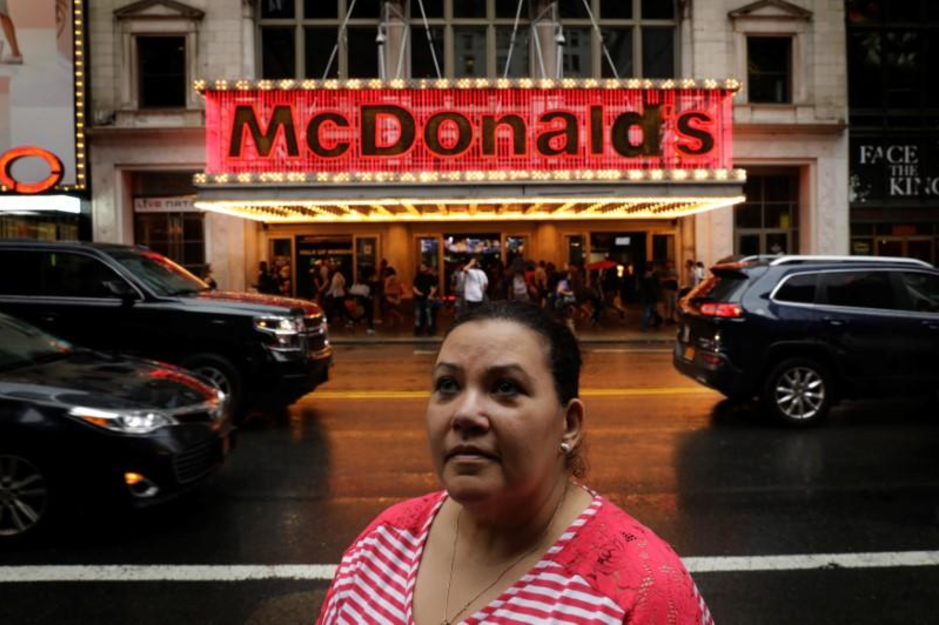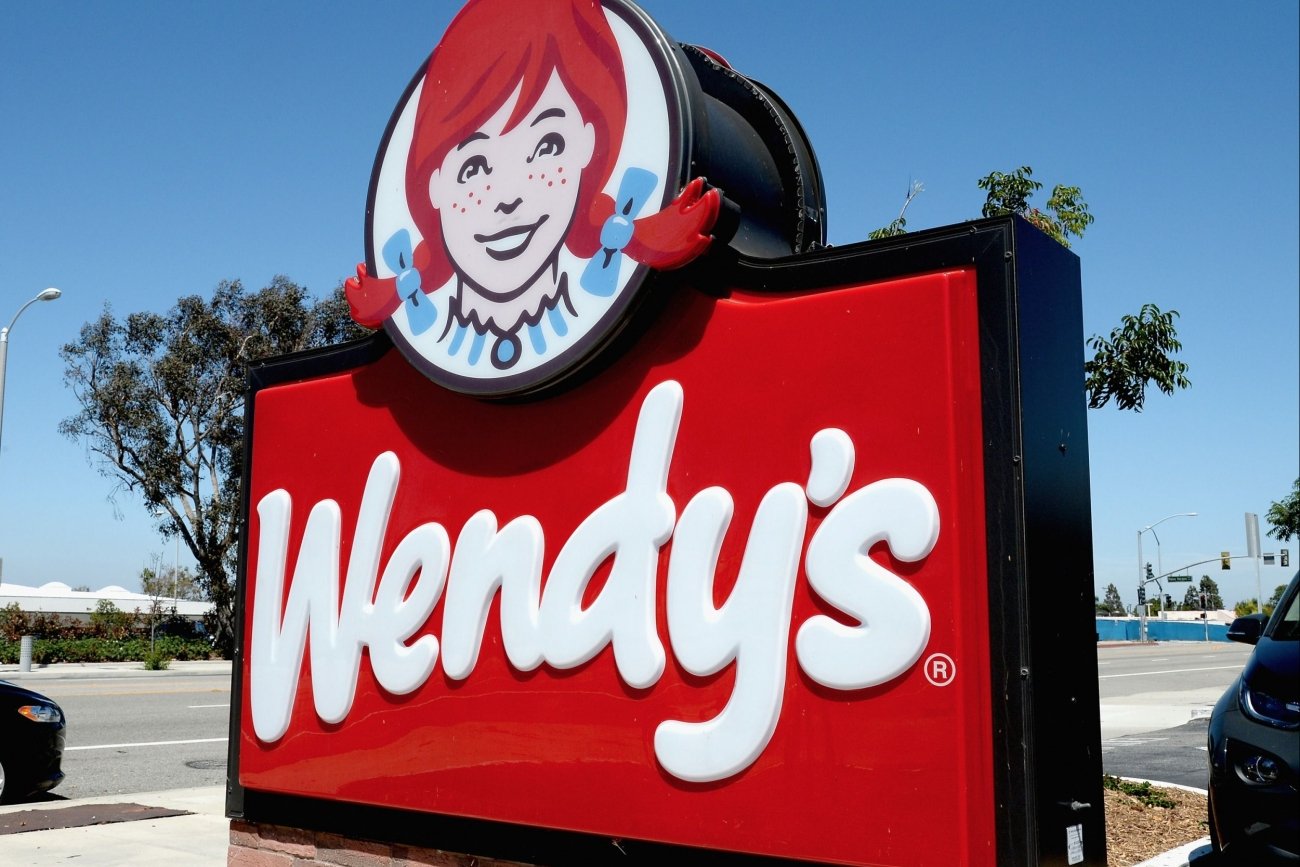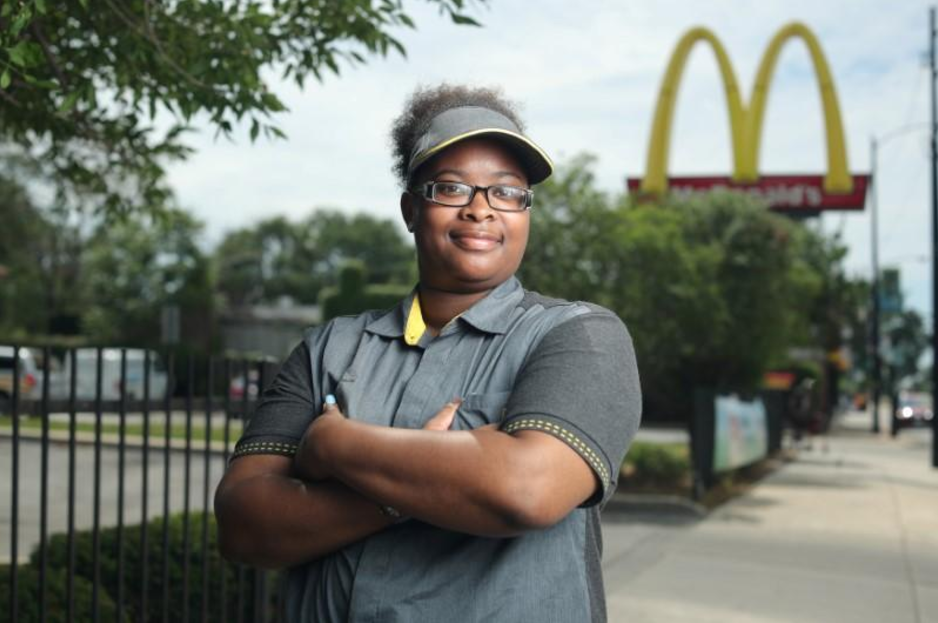It used to be fast food jobs were just something you did in high school to pass the time. It's been a running joke that if you don't finish school, you'll end up "just flipping burgers." But the sad reality is that fast food jobs are becoming more and more common as career-positions for some people. Whether it's because of a lack of education or because of the bad job market, families are relying on minimum wage positions to get by.
One of the major problems with fast food positions is the instability of it all. Unless you're guaranteed full-time work, your hours can change from week to week at a moment's notice.
"Every week you're guessing how much money you're going to get and how many days you're going to work," said Flavia Cabral, who has been working part-time at McDonald's for four years as one of two jobs to support her family.
Recently, Cabral walked in to her 6 p.m. shift at McDonald's only to receive a text message from her boss, saying her shift was cancelled due to slow business. On average, Cabral earns $350 (before taxes) from both her jobs, and losing this shift cost her $63.
Though an entire shift cancellation doesn't happen often, cut hours or changed shifts last minute are all too common in the fast food industry. However, a new law that has been passed in New York City is set to help fast food workers gain some stability in their jobs.
Continue reading to find out what the law entails.
The new law in New York will benefit the approximate 65,000 fast food workers in the city. The law contains the following conditions:
- Employees must be scheduled two weeks in advance, any changes made after those two weeks will result in extra pay for the workers
- Employers must provide 11-hour breaks in between shifts
- Part-time staff must be offered additional hours before hiring new employees
- All "on-call" employees must be paid while they are on-call, regardless of whether or not they are called in for the shift
The law will come into affect later in 2017, despite the harsh push-back from the restaurant industry. It will also include higher minimum wages for the employees. According to fast food chain owners, these new regulations will effectively cripple some locations and ultimately get them shut down.
"There's no way you can stay in business," said Louis Meyer, whose company employs 1,000 workers at about two dozen franchised Wendy's and TGI Friday's in New York. "It's like having a disease. It's going to get you sooner or later."
The law was passed in order to help low paid workers to have some type of stability in terms of scheduling. Making appointments, planning child care, or even scheduling a second job can be hard if you don't know what you'll be working in a week's time.
Ashley Bruce, who has worked at McDonald's in Chicago for four years, says her weekly schedule is usually posted two days before it comes into effect.
"You could only have been on the clock for two hours and they'll tell you to go home," said Bruce.
Do you believe this law will help or hinder the fast food industry and its workers? Let us know.




